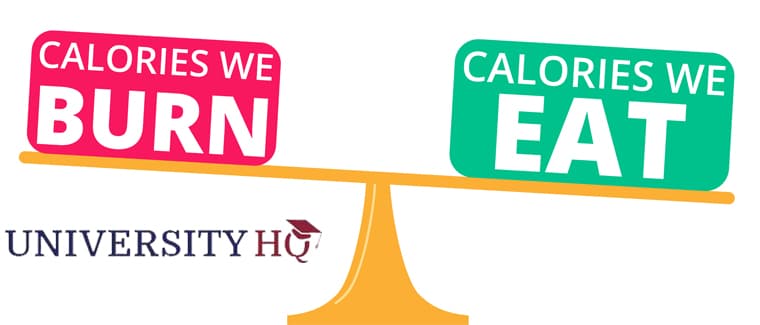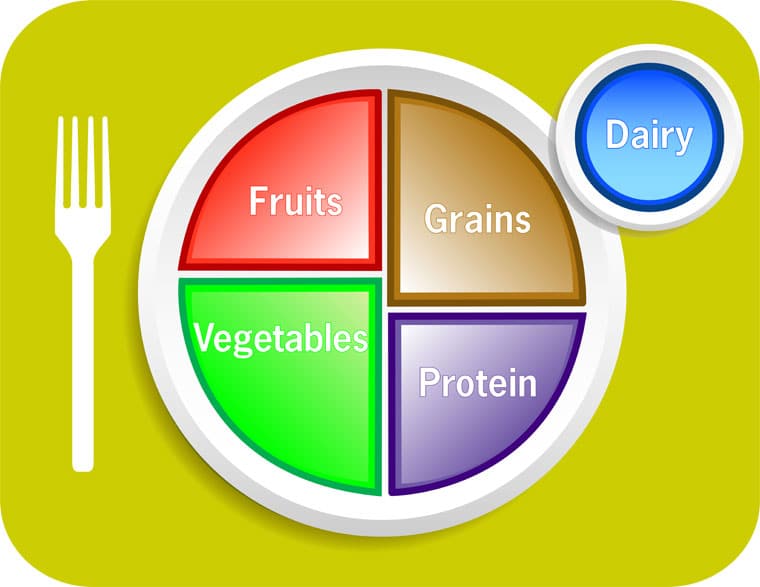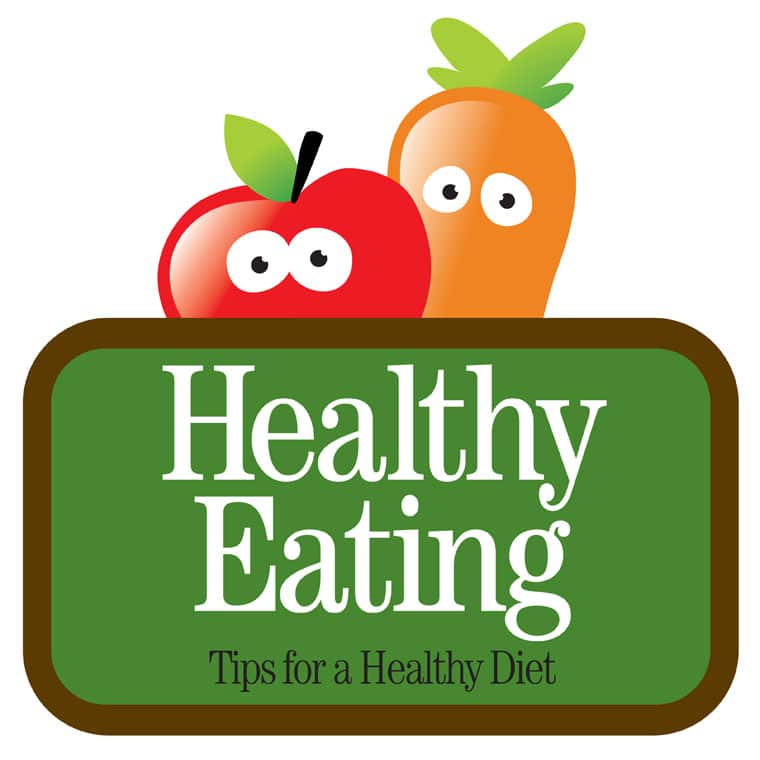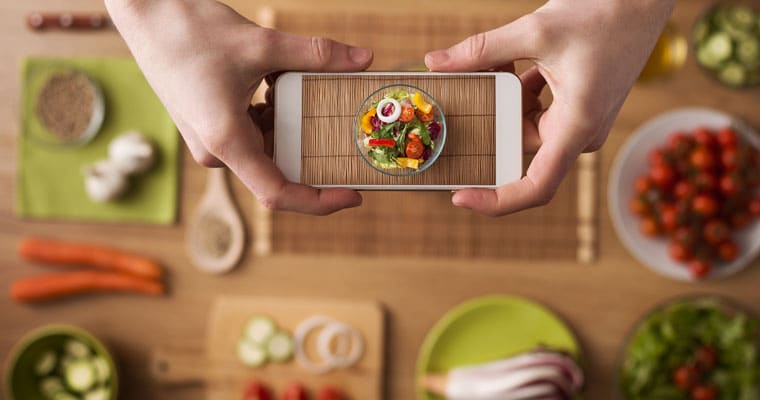Get Matched With Bachelors Programs
College is the time when we go off to attain the knowledge and skills we need to thrive in the world. It's also a time when a lot of personal habits are entrenched. Diet and fitness especially seem to suffer during these years. After all, the "freshman 15" is a thing of legend. However, just because some students gain during their early college years doesn't mean that you must, too. In fact, with the wealth of resources available these days, you can make better choices and take more positive action than students in previous eras.
This page is all about how to attain and maintain optimal health during college, and beyond. Use these resources and see what works best for you. After all, every body is unique and has its own needs.
Resources for Before and After College
Compare Popular Online Bachelors Programs
Nutrition Basics
Recommended Daily Intake
So much nutritional advice is based around the familiar concept of the Recommended Daily Intake. This method is the basis of how we assess supplements and the nutritional content of our food to help make the best food choices. Controversy surrounds the validity of this nutritional measure, but it does provide us with a standard by which to gauge our diets and our supplement usage.
Keep in mind that your body is unique. What works for your friend may not necessarily work for you. There are many factors at play but things like age, sex, height, and weight are certainly key factors. Then, each body reacts to nutrients in its own individual way. Even that can change due to things like your activity level and current physical condition.
Find Your Online Bachelors Program
Further, we may not need every nutrient every single day. Vitamin D, for example is supplemented into milk and even orange juice. However, if you live in a sunny climate, you probably get enough D just by walking to campus. Furthermore, vitamin D is stored in our fat cells, so it is not constantly metabolized. Regardless, the more you keep tabs on the foods and nutrients you take in, the better off you will be.

Food Pyramid to MyPlate
For years, Americans relied on the Food Pyramid for a visual representation of the foods they need to eat. Recently, however, the Pyramid fell to MyPlate. In 2011, the Obama administration unveiled this new nutritional schema to help simplify how we assess what we eat. Michelle Obama praised MyPlate as being a "kid-friendly tool." The plate still relies on the old four food groups, but it arranges each as a quadrant of a plate. Veggies take the largest portion and are separate from protein, which is a smaller portion.
Many note that protein isn't an actual type of food, but a nutrient. The USDA used it as a category because most people use the term as a food category, most often consisting of some form of meat. The category does include tofu, but it ignores that many vegetables are fantastic sources of protein.
Nevertheless, MyPlate represents a new wave in our approach to nutrition. There are abundant resources online that will help you implement its suggestions.

Benefits of Proper Nutrition for College Students
Everyone can benefit from proper nutrition, but it might be particularly important that college students pay attention to their diet. That's because students are frequently under a great deal of pressure from classes, social life, and even their jobs. When you aren't getting the nutrition you need from your food, you may experience lower energy levels, and an overall loss of performance.
In fact, a recent study shows that a typical Western style diet can impair brain function. The chief danger seems to come from junk food. Processed, over-sugared foods can damage the hippocampus, the brain center for memory and appetite control. Not only does poor eating impair your ability to remember everything you need to pass anatomy, but it may induce over-eating, which can trigger a cascade of problems.
With proper nutrition, college students can perform to their optimal ability. Focus on eating as many veggies as you can and eliminating sugar as much as possible.
Find Online Bachelors Schools
Challenges to Maintaining Good Nutrition in College
It's difficult to maintain proper nutrition in college. Often, students are facing daily time crunches and schedules that change every day. If you're working a service industry job or doing a freelance gig to make ends meet, you might find yourself grabbing a sack of fast food to gobble between important items on your agenda.
Students often lack a proper kitchen, don't know how to cook, and complain that healthy food is too expensive. However, if you have a refrigerator, you can overcome many of these problems. You can stock the fridge with fresh fruits and veggies. Then, if you can invest in a juicer, you can make a large jar of juice to get through the day. A blender is also a good option to make smoothies. These can be delicious and supremely nutritious.
As for the expense, if you compare your receipts, you will likely find that your dollar goes just as far when you eat a healthy diet. Further, you'll get more value from your money if you eliminate non-nutritional snack foods, desserts, and junk foods. On top of this, you will probably start to feel far better when you eat better.
A Healthy Dose of Knowledge
Knowledge is power. That's probably a big, underlying reason for why you're in college. Studies now show that when you know more about nutrition, you end up eating better and avoiding the foods you should. A 2016 study of college students showed that their intake of harmful trans fats decreased when they received more information on their effects on the body.
There's so much to know about nutrition these days, so it might seem difficult to know where to start. One easy place to begin is with the MyPlate recommendations provided by the USDA. From there, you can consult a wide range of websites, YouTube videos, and books.
On a day-to-day basis, your diet will be well-served by reading the nutritional information on as much of food you eat as possible. For instance, you might not be aware of how much sugar goes into things like peanut butter and bread. When you compare nutritional information, you can make better choices. While the sugar-free items may cost a bit more, the added expense will pay off in terms of health and well-being. If you're going to a larger chain restaurant, they likely post nutritional information on their website. Even smaller restaurants provide some good information on their dishes. The more you learn about your daily choices, the better your meals will become.
Making Healthy Choices at Mealtime
In the Cafeteria
In college, students are faced with tumultuous schedules, lots of stress, and too many bad food options. However, with a bit of knowledge and careful choices, you can optimize your options and maintain good, healthy nutrition. One easy thing to do is to order with your eyes. Research has shown that college students who order from a menu board tend to make less-healthy choices than those who selected from trays on a cafeteria line.
You can also try to pay with cash rather than a debit or credit card. Students on unlimited meal plans frequently become less attentive to their meal choices when they are unencumbered by budgetary concerns. There are other ways to ensure that you eat better on your meal plan.
One of the best ways is to make sure you pay a visit to the salad bar at every meal. In fact, try to make a whole meal from a salad. With enough added nuts and other items, you can make a hearty meal. Make sure you focus on mixed greens rather than iceberg lettuce, however. Iceberg is nice and crunchy, but it has very little to offer in terms of nutrition.

In the Dorm
Eating in the dorm all too often involves dried noodle soups, pizza, cookies, and chips. However, these foods all contribute to ill health and even poor cognitive functioning. If you have a small dorm fridge, you can stock it with healthier options such as fresh fruit and vegetables. A few cans of hearty, nutritionally sound soup can take the place of those noodle soups, and even having a jar of sugar-free peanut butter and a loaf of fructose-free bread can get you through late-night study sessions.
If your dorm does have a stove and you have pots and pans at your disposal, you could start teaching yourself some basic cooking skills. Roasting a chicken can be a great way to ensure dorm food for a week and a pot of chili can be stored in the fridge or even frozen for later meals.
Search Programs Offering Bachelors Majors
Budgeting for Meals
If you need to make your food dollars go farther, you'll need to do some planning. First you might want to assess how you eat. Look at how much snack food you ingest and the overall quality of your meals. Then, resolve to make a budget around healthy choices. One of the first place to begin a budget is by figuring out how to make meals stretch.
For instance, if you buy a bag of rice, you can cook a half-cup and transform a can of soup into a full meal. Another trick is to make things in bulk. If you can make a pot of soup or stew on Sunday, you can keep the rest in the fridge for meals during the week. If you get tired of it, you can freeze meal-sized portions and you're late-night starving self will rejoice.
One handy nutritional solution to budgeting is to avoid so much sugary foods. These set up a cycle of craving rather than a healthy appetite and you will find yourself eating sugary snacks when you aren't really hungry. Not only does junk food add to your budget, but it's a detriment to your health.
Nutrition Tips
- Healthy snacks:
Baby carrots, apples, and grapes are a great place to start. - Make smart choices:
If you have no other option than the drive-through window, seek out restaurants that offer salads made with leafy greens. - Stay hydrated:
keep a water bottle full and handy all day long. If you enjoy a workout session, make sure to leave the gym/track/court with plenty of water. - Don't avoid the salad bar:
try to eat a salad with every meal and try to make whole meals from salad alone. - Cut energy drinks:
They're easy and they kind of taste good, but energy drinks are loaded with sugar and odd chemicals. Make a thermos of coffee if you need a caffeine boost. - Avoid alcohol:
Alcohol is a detriment to every system in your body, especially your brain. There are many great non-alcoholic beers available these days and you can also experiment with mocktails. - Stay fit:
You might find that if you're in shape that you crave more whole, nutritious foods. Join an intramural sports league or take advantage of the campus gym. If all else fails, find some friends and throw a frisbee around the quad. - Creative add-ons:
Rice is a great thing to add to soups and fresh or frozen vegetables can turn your 25-cent ramen into a thing resembling tasty, nutritious food.
On-Campus Resources
Your campus likely has many resources to help you attain and maintain health and wellness. Some universities have schools of nutrition that might offer students pointers on how to eat well. Your cafeteria might also provide detailed nutritional information about the meals they prepare. This knowledge will help you keep your body strong and healthy.
Your school likely has a fitness center for students as well as an intramural sports league. Take advantage of these opportunities because they will help you form great habits for later in life. If it's been a while since you exercised, try to walk to class rather than driving or taking the bus.
Your school health center may also be a great resource for health and nutrition information. They might have a nutritionist with whom you can consult regarding your specific needs. A naturopath might also be a good professional to consult, especially if you're experiencing any allergies or even illnesses.
Other Nutrition Resources for Students
Great Health and Nutrition Apps

- MyFitnessPal:
This popular app will help you track your meals, calories, and measure how many calories you burned in your last workout. - MyPlate Calorie Counter:
Note that it's important to also track carbohydrates, especially sugars, but a calorie counter can do wonders for your waistline. - Fooducate:
If you want to know what's really in the food you eat, you can use this app to plan your next meal. Look up the products you want before you buy them and make your best nutritional choices. - Get Fit Fitness at Home:
This is a comprehensive app that integrates nutrition and fitness resources into one handy app. - Lose It:
This app includes a comprehensive database of foods to help you track calories and lose weight.
sources:
- https://www.theguardian.com/science/2020/feb/19/researchers-find-a-western-style-diet-can-impair-brain-function
- https://www.sparkpeople.com/resource/nutrition_articles.asp?id=425
- https://www.usda.gov/media/blog/2017/09/26/back-basics-all-about-myplate-food-groups
- https://www.webmd.com/diet/news/20110602/plate-replaces-pyramid-as-diet-guideline-icon#
